Arts
Examining the role of The Arts as a catalyst for healing, transformation and action
Introduction
The practice of Art—in its infinite forms, functions and implications—is the most accessible and universal way of constructing meaning out of the world we inhabit.
Our Philosophy: The Arts are not just for experts. They are not solely for the enjoyment of the elite. They are not a superfluous extravagance. The Arts are for us all, expert and novice alike. They are not just an end in and of themselves, but a means. They shape, and are shaped by the world we inhabit.
Students in the Arts Scholars program gain a deeper understanding of the impact of art as a means to explore society and culture against the backdrop of our individual differences and shared experiences.
What you can expect: No matter your major, area of artistic interest, or skill level, as a member of our community, you will be challenged to strengthen your personal artistic skill set, experiment with new and different art forms, and gain a deeper understanding of the value of the arts in our personal and collective lives. We will investigate the power of the arts to:
- Communicate difficult concepts
- Advocate for social change
- Investigate the human experience
- Explore our own identities
- Develop our capacities as creative problem solvers and critical thinkers
- Reinforce, but also upend, existing systems of inequality and oppression
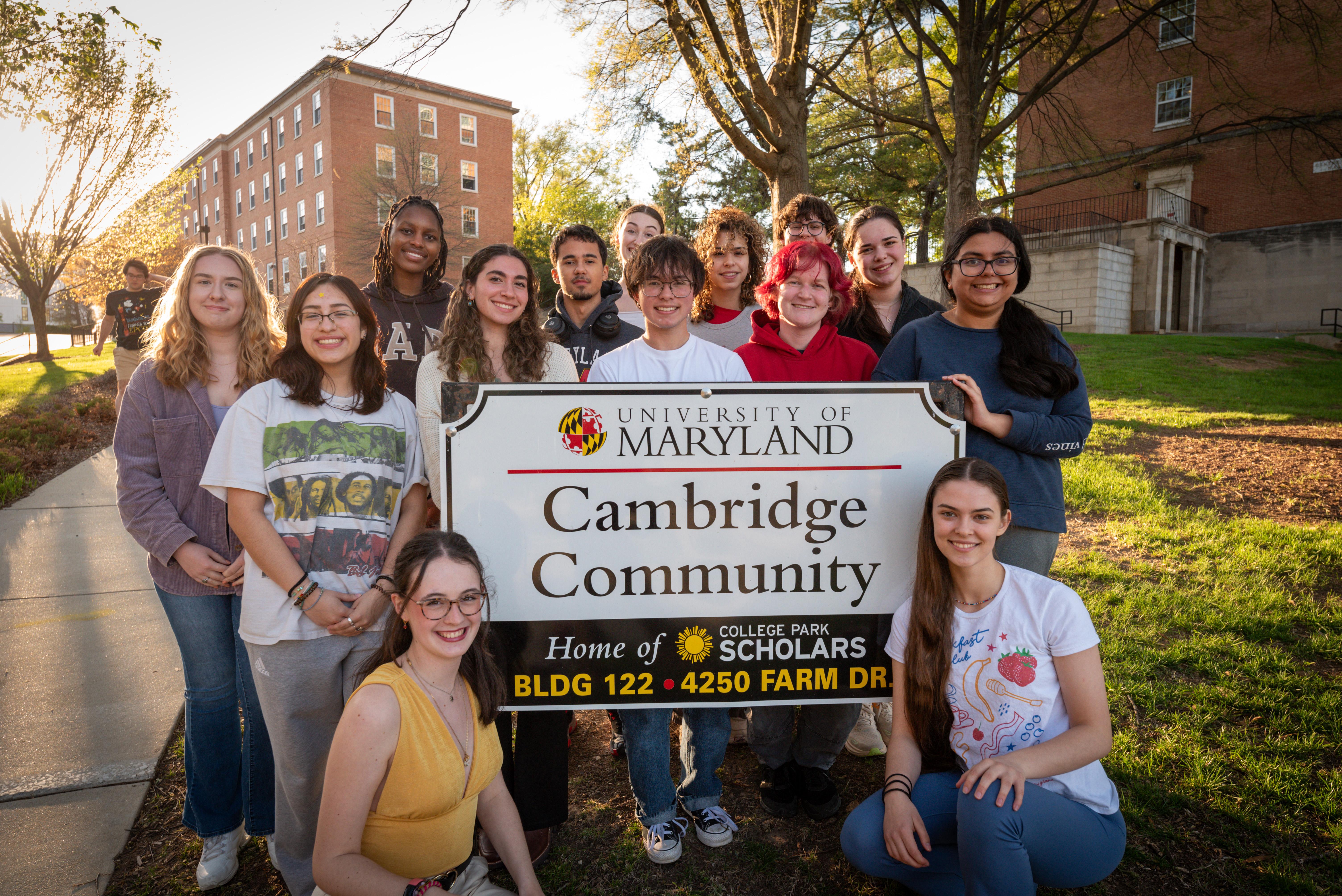
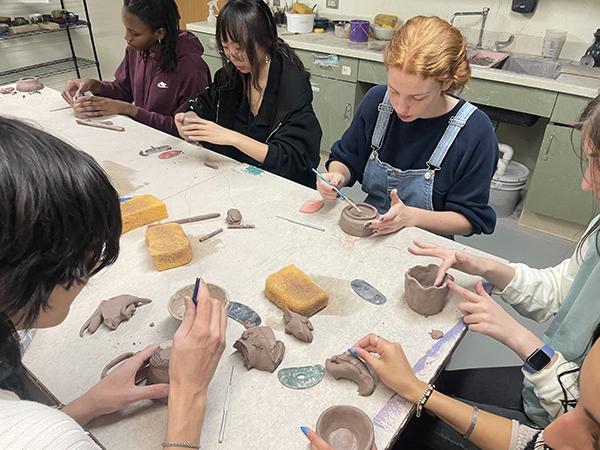
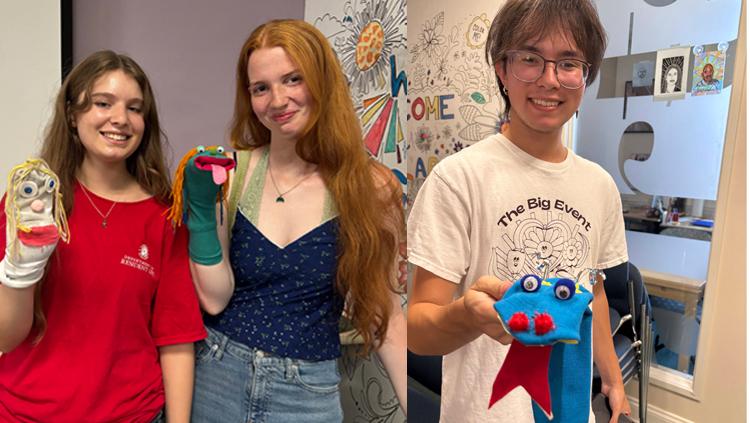
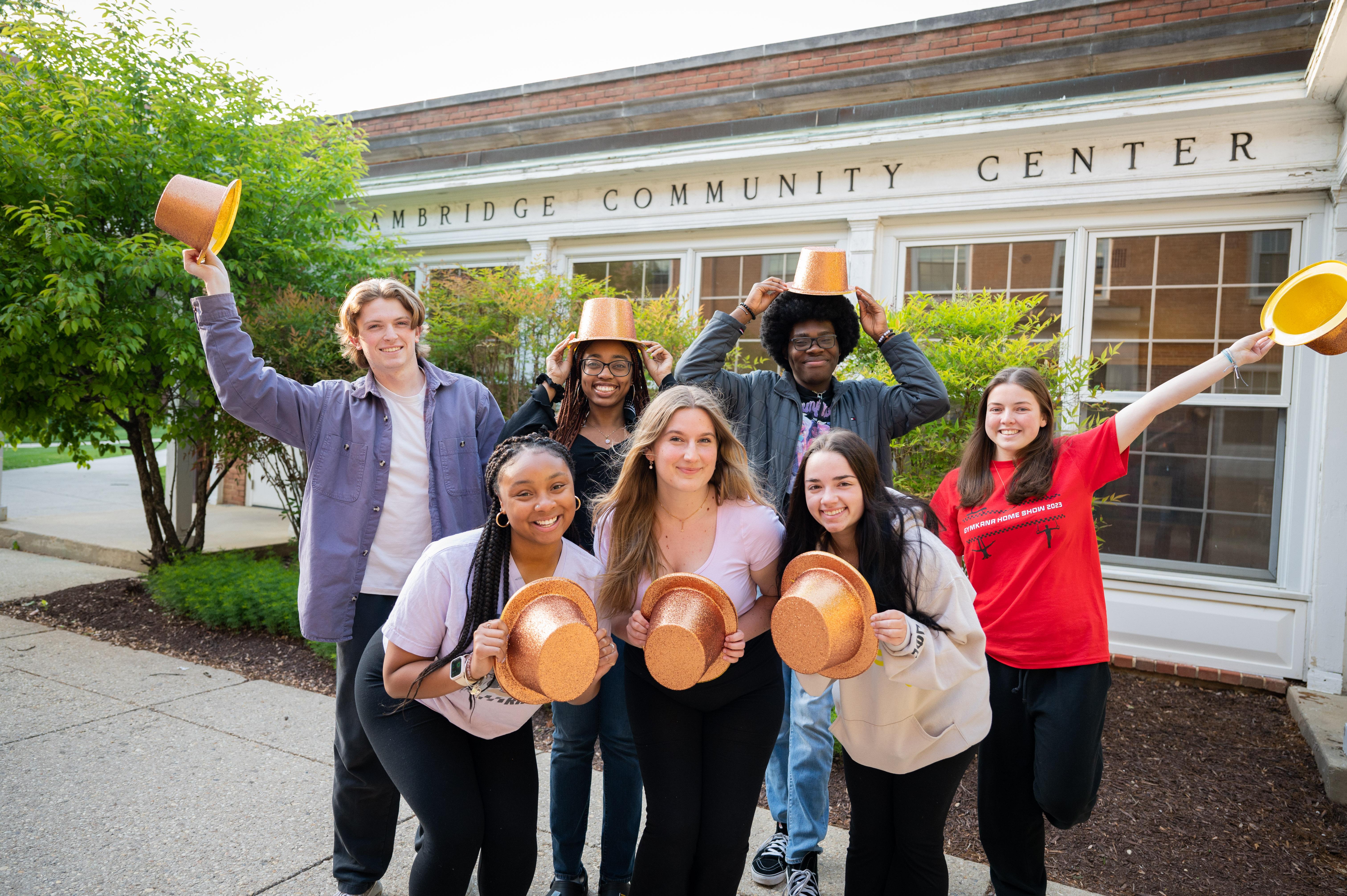
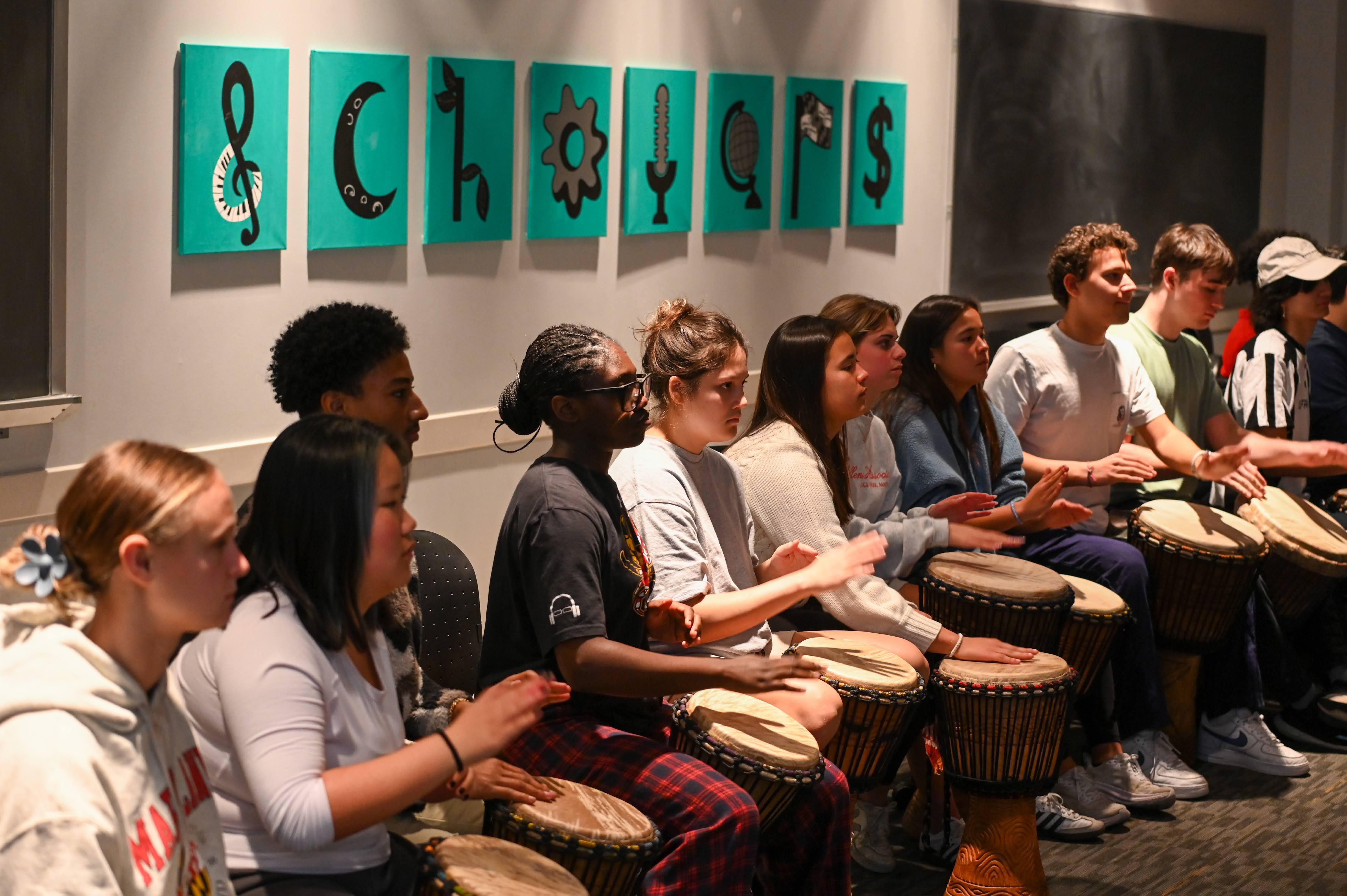
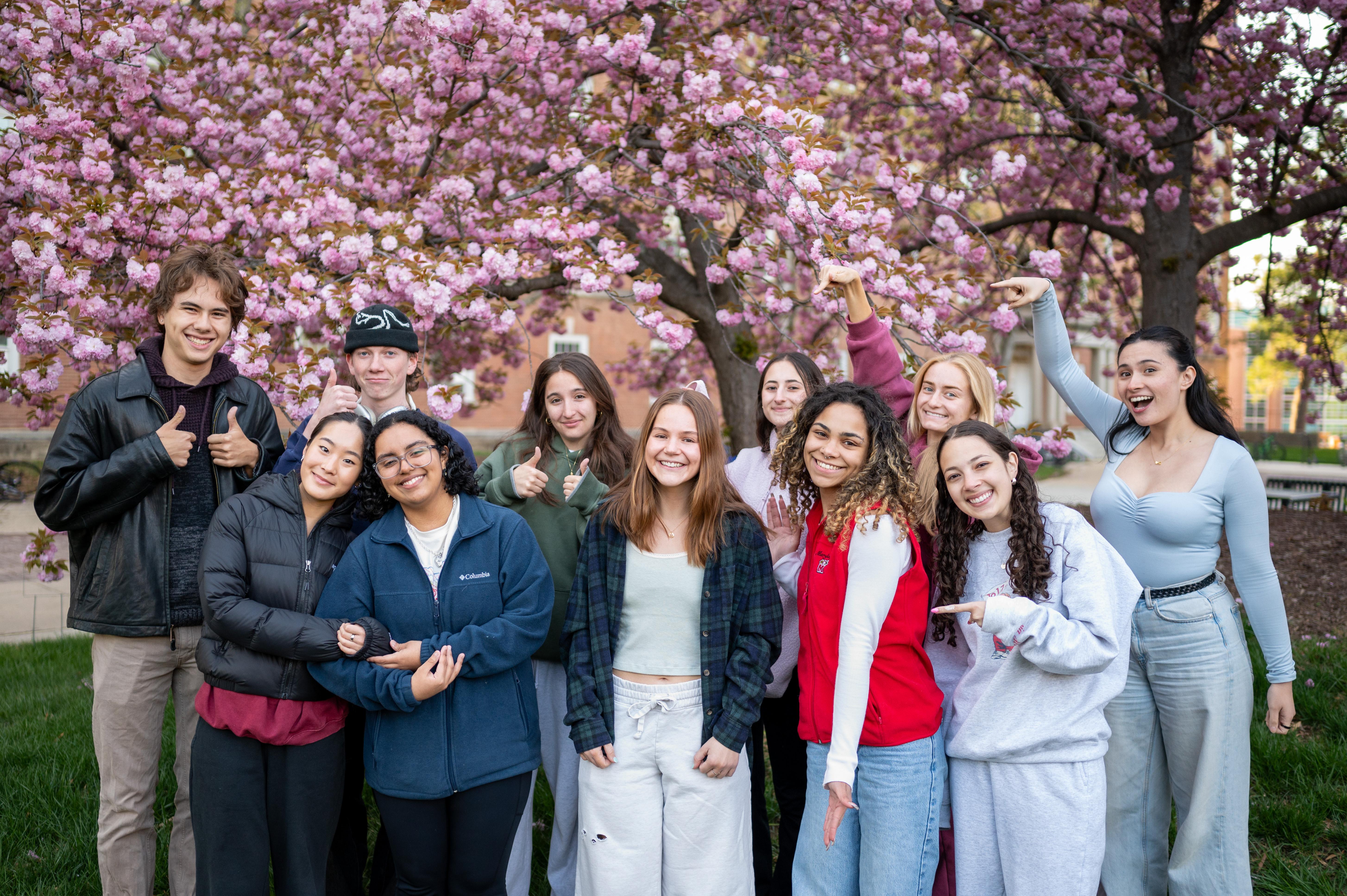
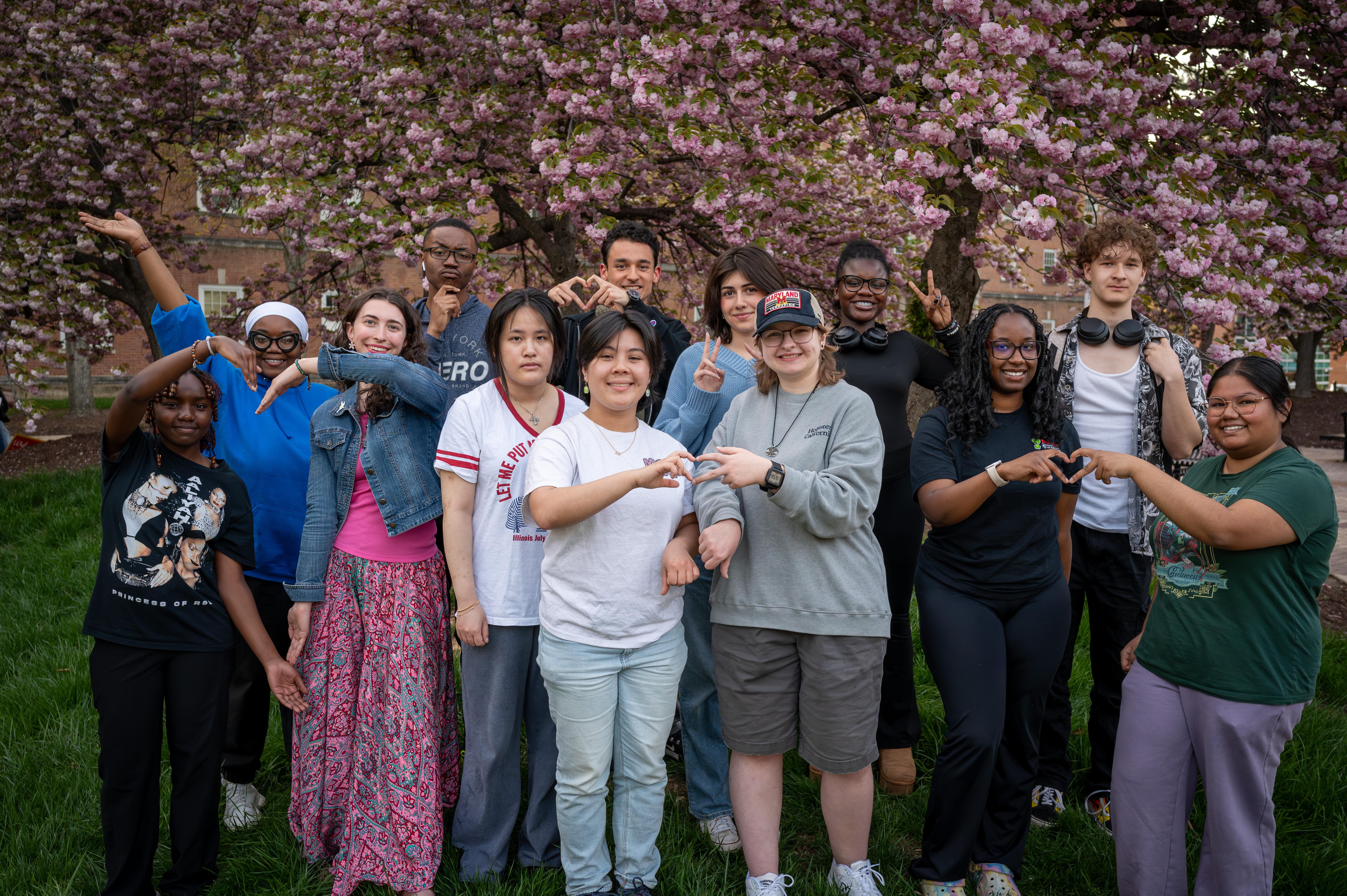
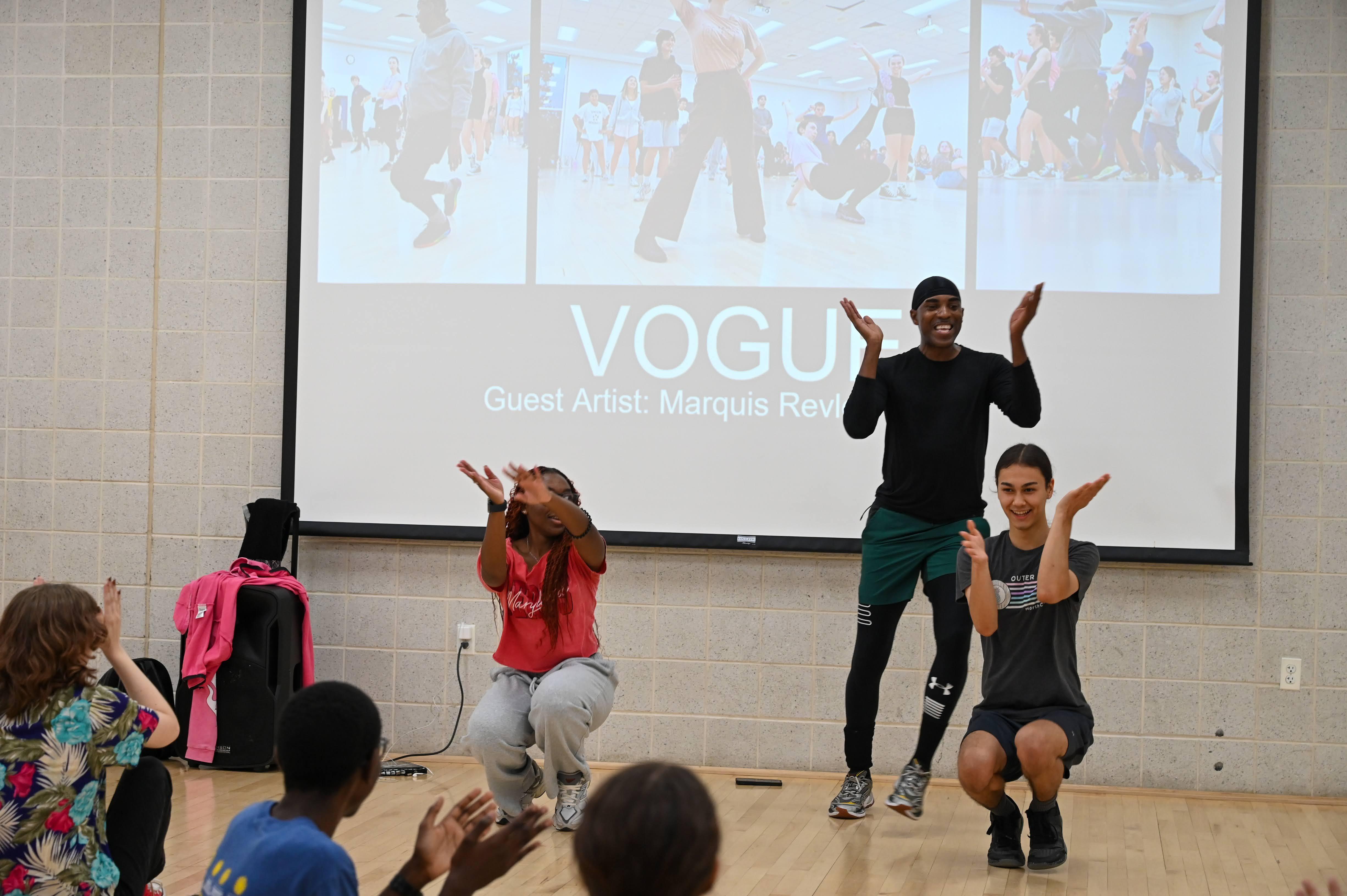
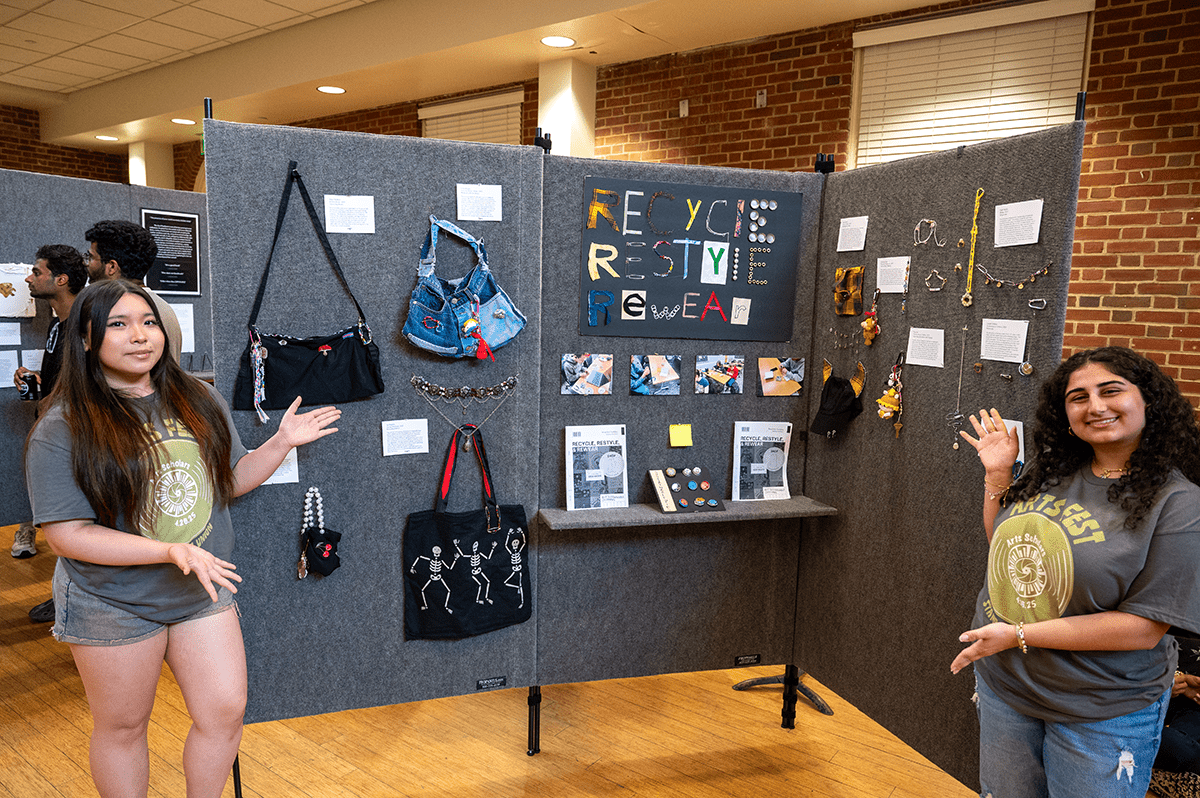
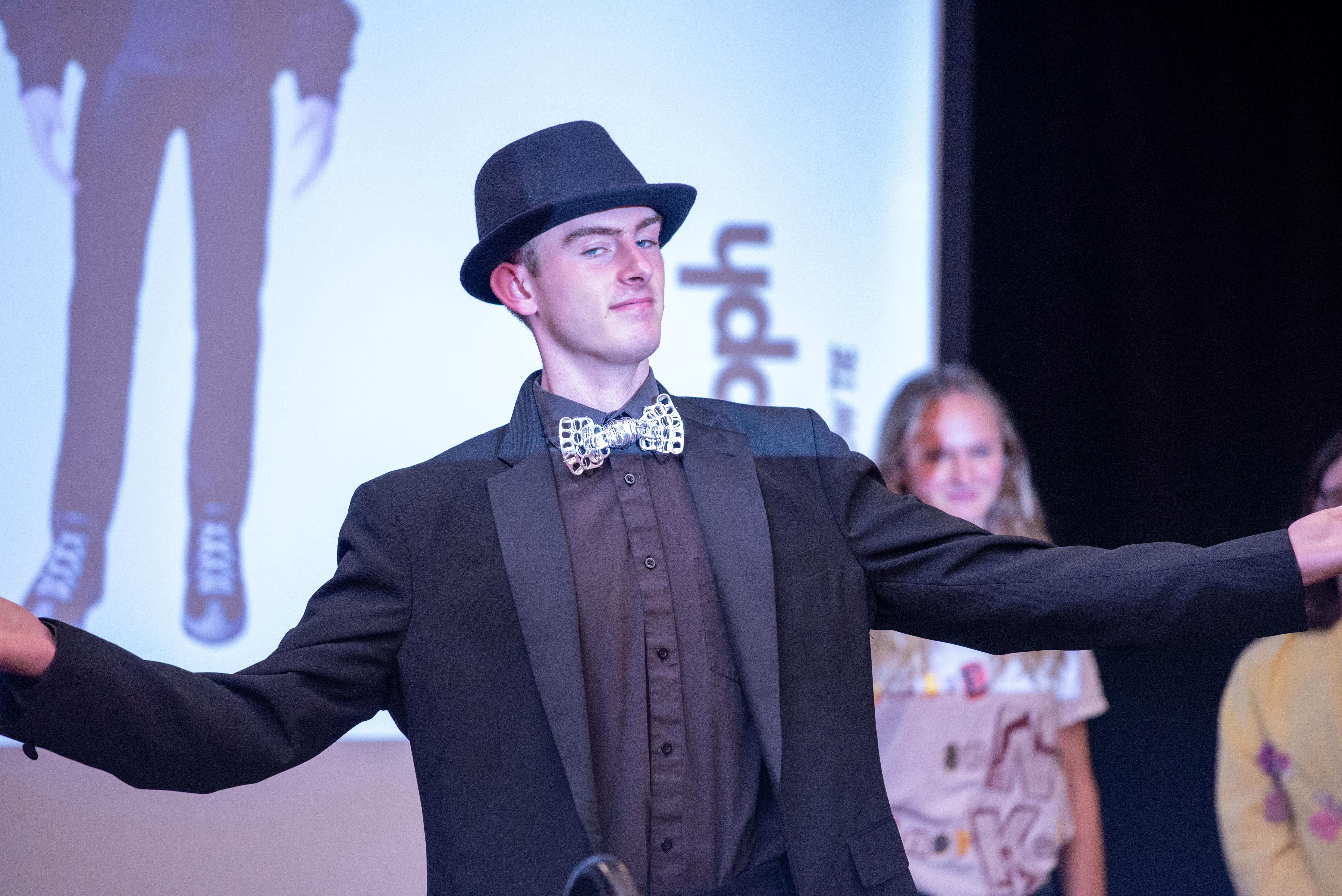
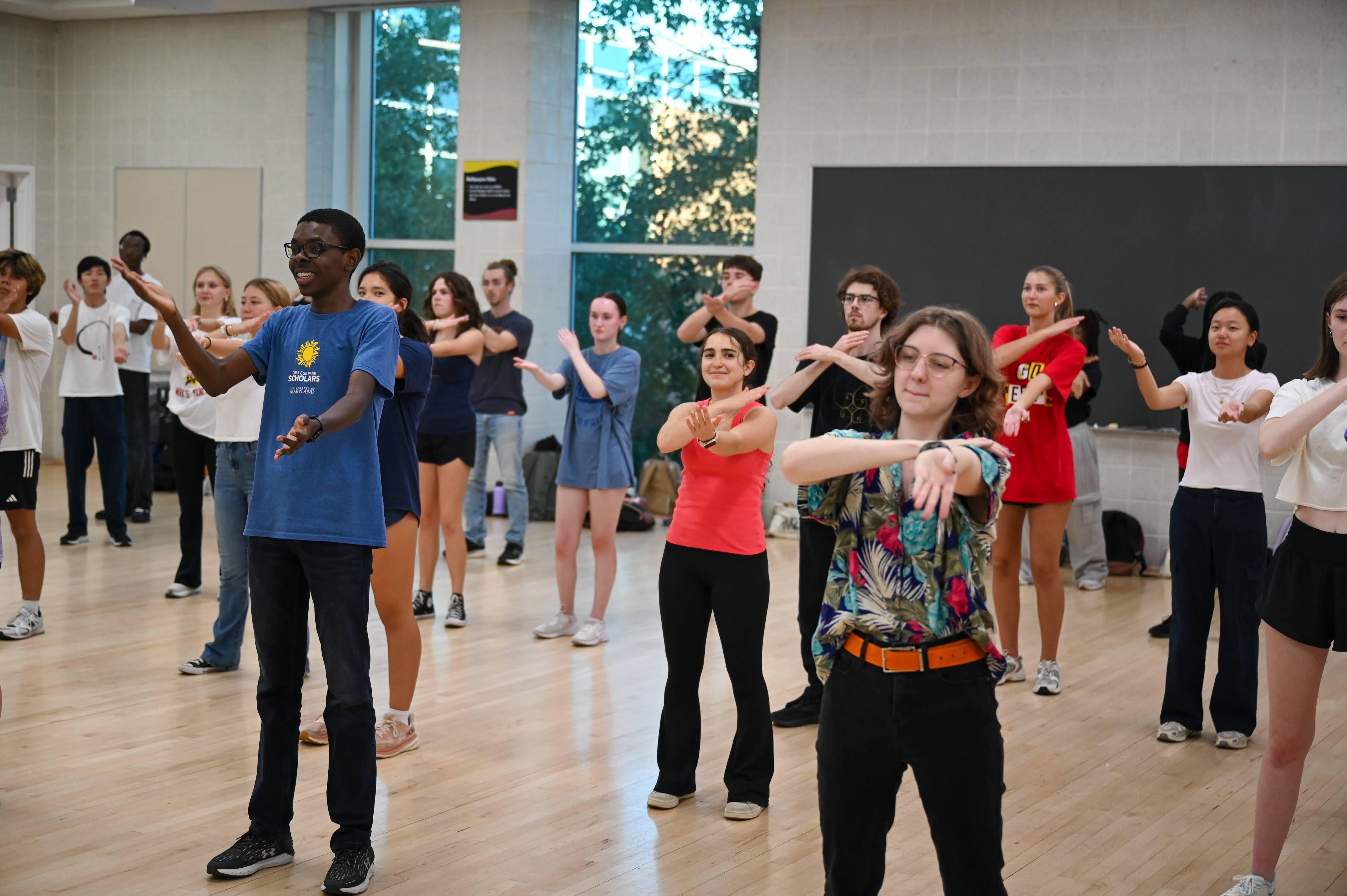
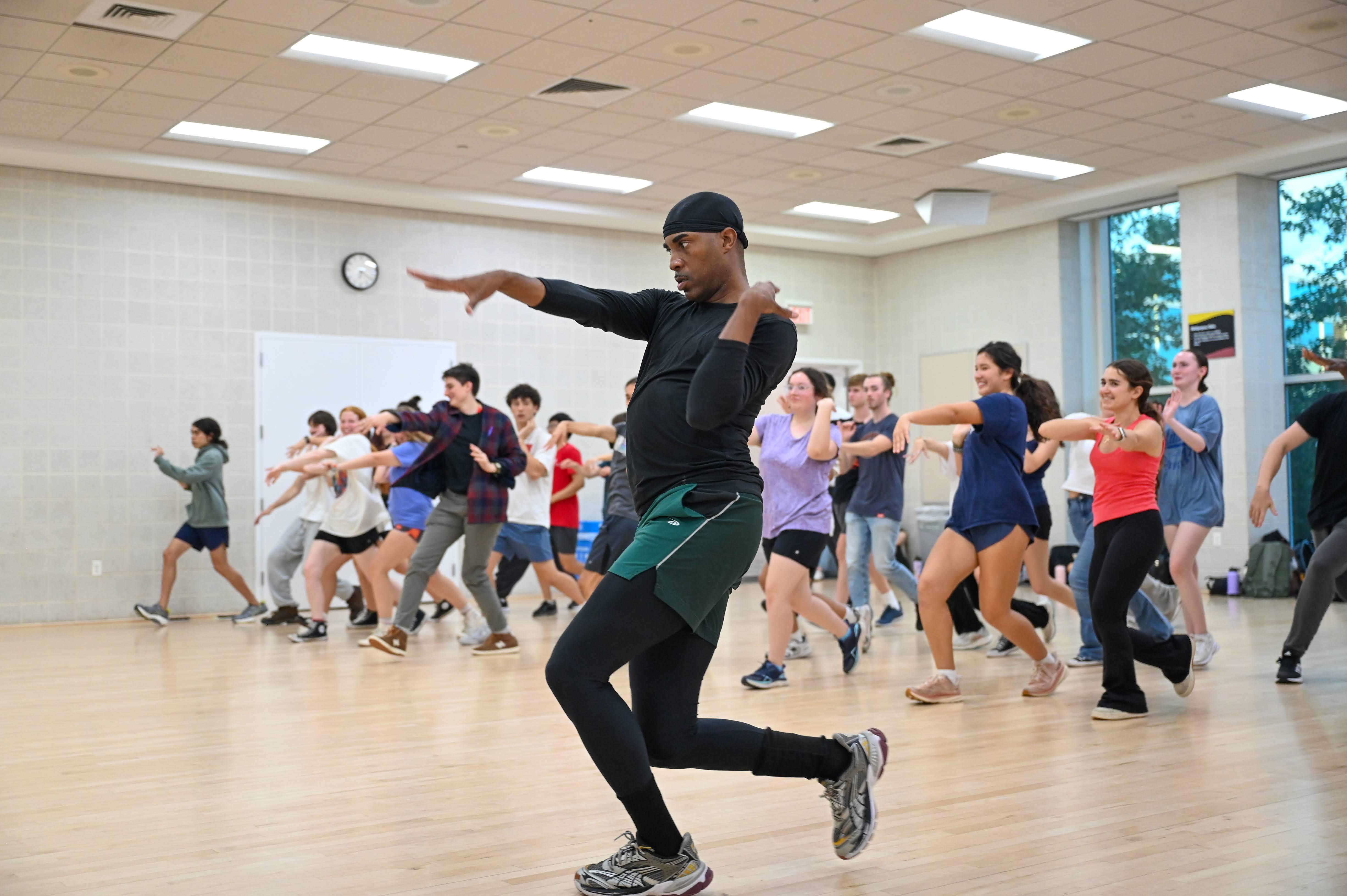
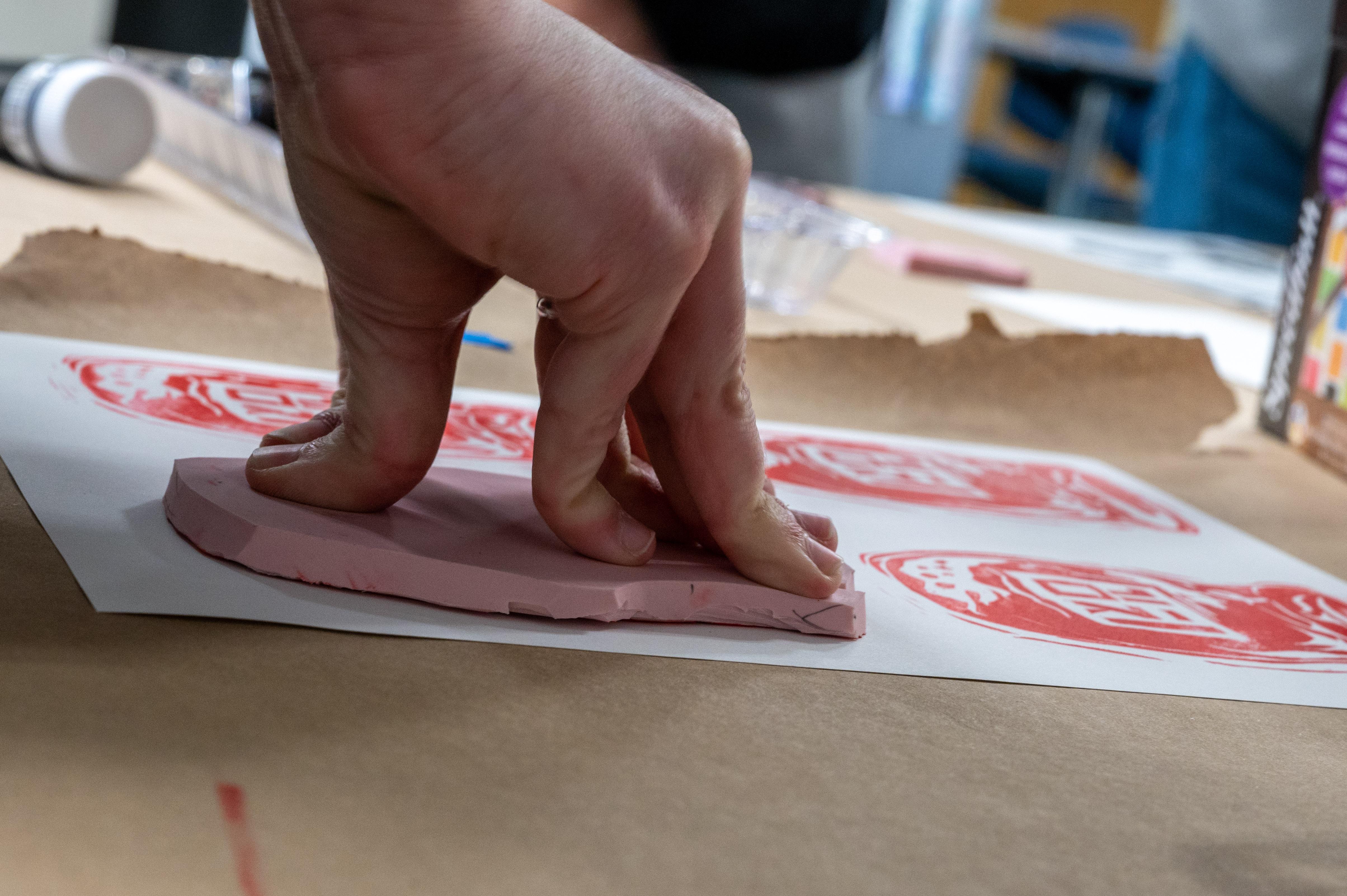

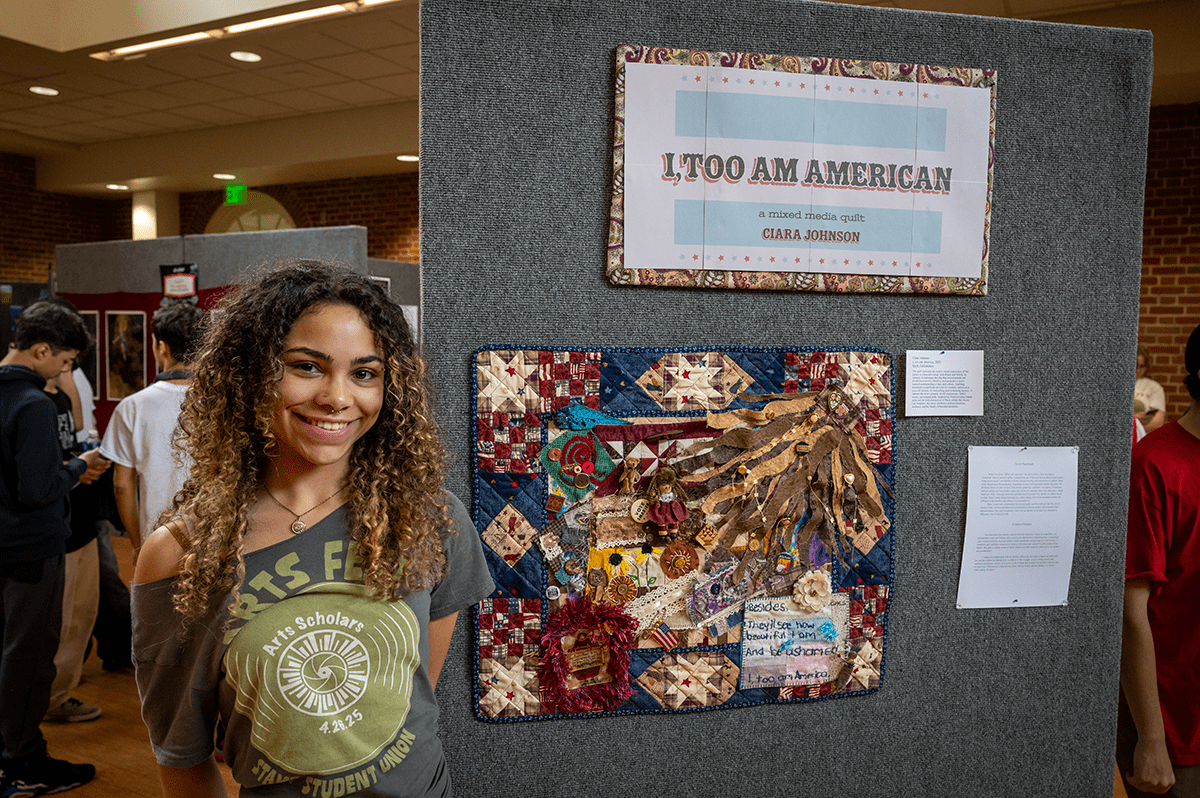
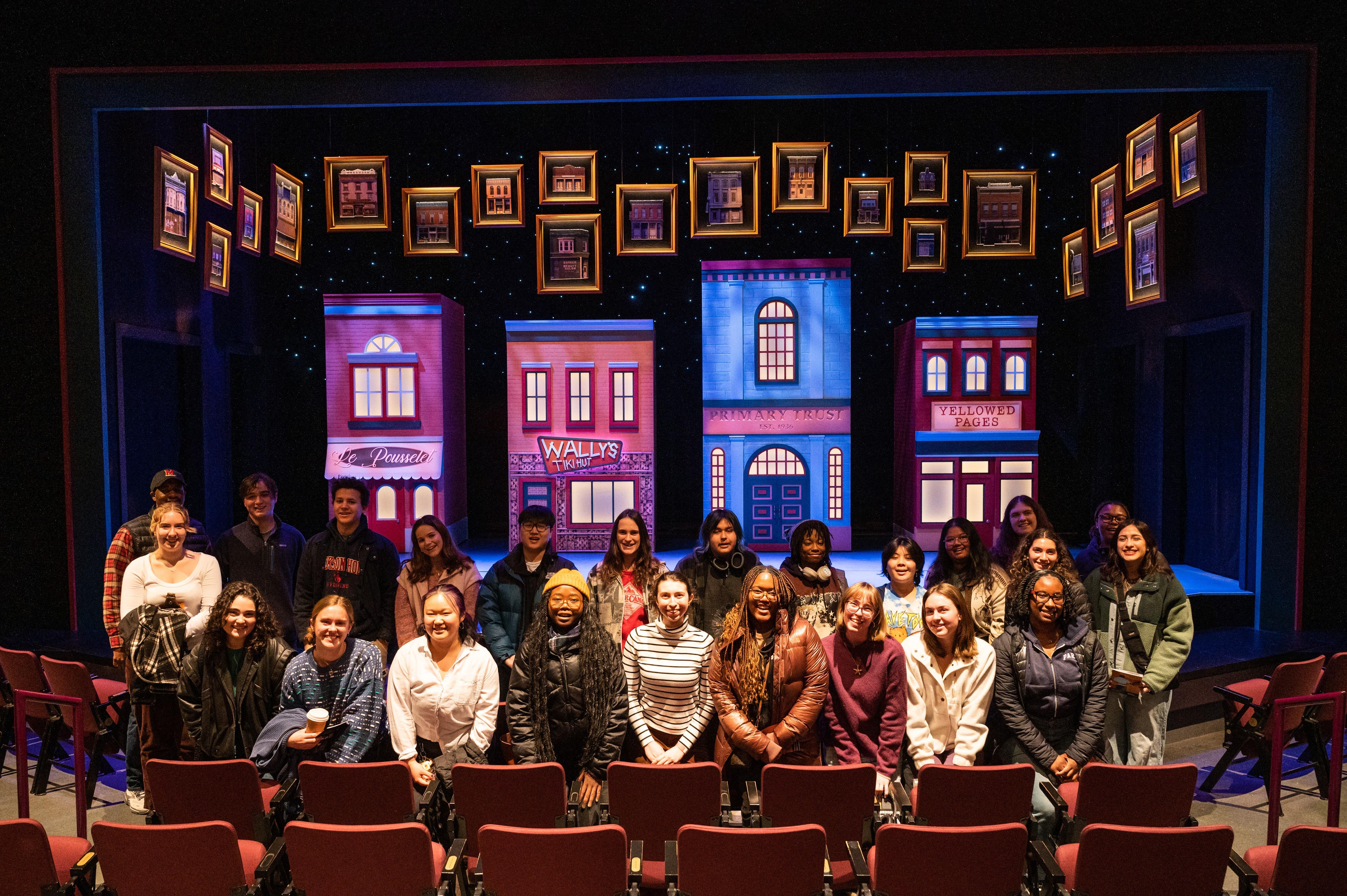
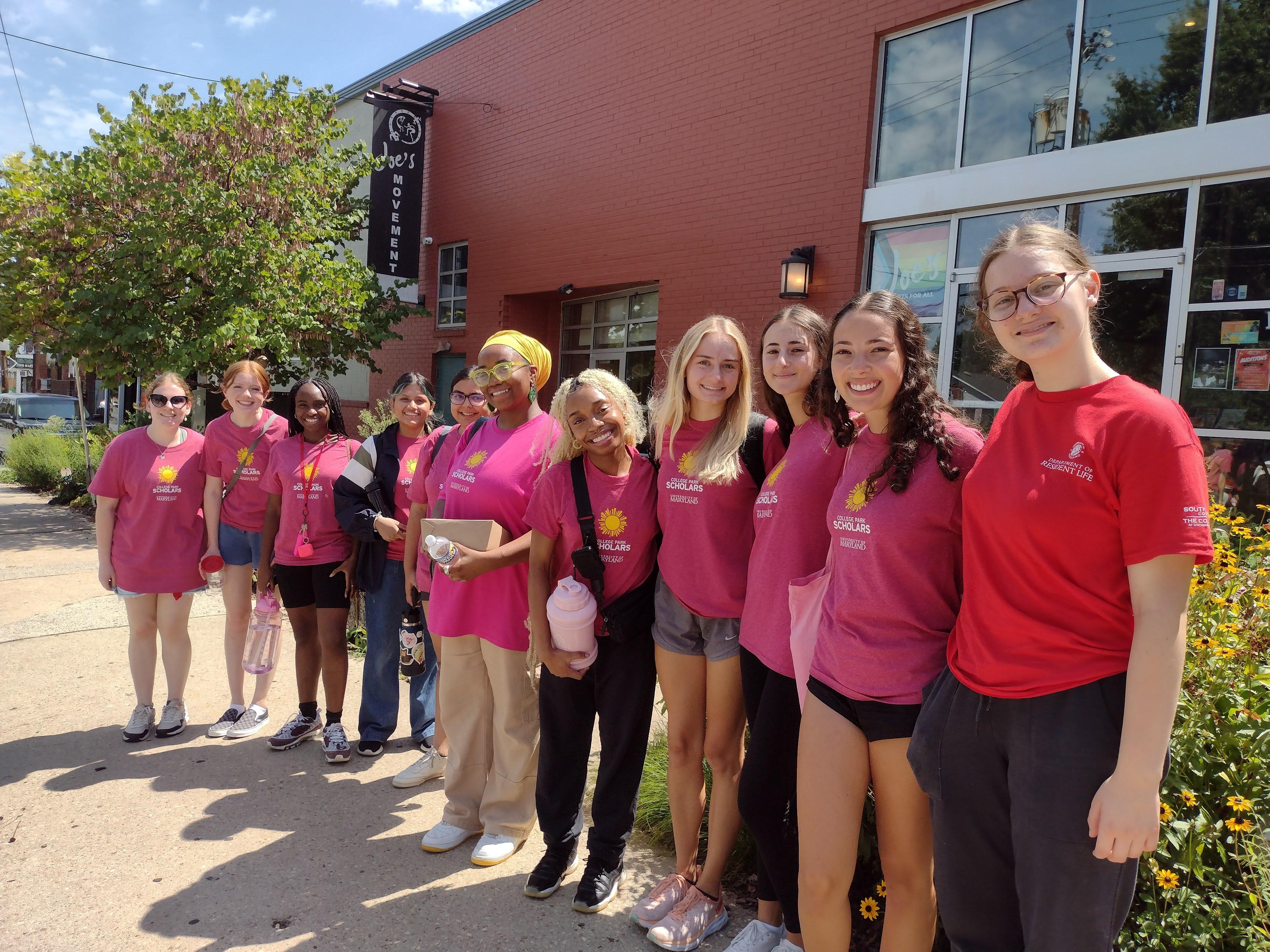
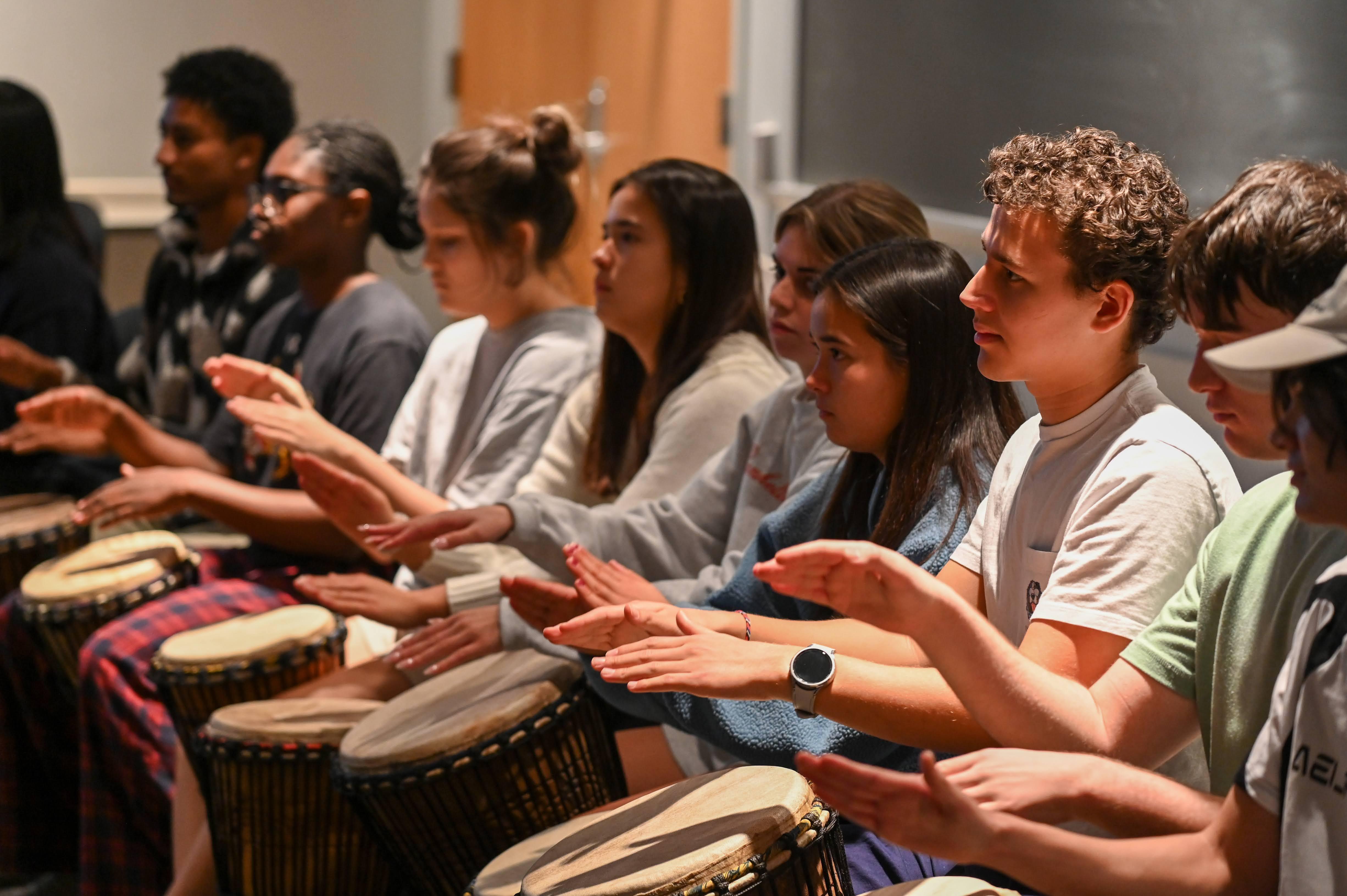
Colloquium and Lecture Topics
Through a mix of lectures, discussions, and guest artist workshops, and experiential projects, students consider (see our most recent “Year in Review” page for photos!):
- Vogue Dancing: How can art be used as a tool for resilience, resistance, and social chance?
- Artistic Consumption: How is artistic “taste” shaped by our social identities?
- Creative Research: How can empirical research, rapid iteration, and prototype testing improve your creative process?
- Spoken Word Improv: How can the principles of improv inform and improve our everyday lives?
- Campus Galleries: How can slow-looking help us combat the pressures of a frenzied world?
- West African Drumming: How can music build community, tell stories, and promote intercultural understanding?
I have been challenged to think differently, work cooperatively, embrace creativity and, most importantly, go beyond the limits I have set for myself. Because of this program, I can confidently say I feel infinitely more prepared for the “real world,” and for that confidence and growth, I could never be more grateful.
Other Learning Opportunities
Outside the classroom, Arts Scholars have many other opportunities….
Experience the arts first hand:
- Field trips: Each semester students visit locations such as The Clarice Performing Arts Center, the Everyman Theatre in Baltimore, the National Gallery of Art, and the National Museum of African American History and Culture.
- Maker Mixer: Teaching Assistant led community building events that include crafting, visiting campus galleries and maker-spaces, and attending shows on campus.
Creative Capstones:
- Sophomores develop capstone projects - identifying a social issue of significance to them to be explored through an artistic medium of their choosing. The capstone project is about your unique view of the world and what you want your audience to understand or experience as a result.
- All capstones are displayed at ArtsFest- an annual exhibition of student work in the Stamp Student Union.
Leadership opportunities:
- Arts Media Team: Social Media & Newsletter assistants work with Arts Faculty to research, draft, and publish the weekly newsletters and Instagram posts to the community.
- Arts Teaching Assistants: Arts Scholars graduates build their skills and experience leading discussions, developing events, and serving as mentors to current students.
Curriculum Overview
Over the two-year program experience (four semesters), students will complete up to 6 credits of supporting courses that will count toward your Arts Scholars citation. In most cases, these will also fulfill General Education requirements. Note that your Scholars courses—colloquiums, capstone practicum and supporting courses—will generally be in addition to any courses you take to satisfy major requirements.
The following represents a typical two-year curriculum, but individual schedules may vary. Details about courses and requirements can be found on the Arts Citation Checklist.
| SEMESTER | COURSE | CREDITS |
|---|---|---|
| Semester 1 | CPSA 100: Colloquium I | 1 credit |
| Semester 2 | CPSA 101: Colloquium II | 1 credit |
| Semester 3 | CPSA 200: Colloquium III | 1 credit |
| Semester 4 | CPSA 201: Colloquium IV | 1 credits |
| CPSA 240: Service Learning; or CPSA 250: Research (DSSP); or CPSA 260: Peer Teaching (DSSP) |
2 credits 2 credits 2 credits |
|
| Semester 1, 2, 3, or 4 | Supporting Course (var. Gen Ed) Supporting Course (var. Gen Ed) Supporting Course (DVUP or DVCC) |
3 credits 3 credits 1-3 credits |
Sponsoring College
Faculty
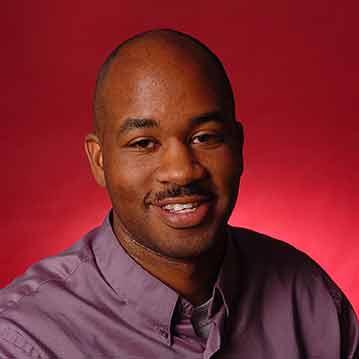
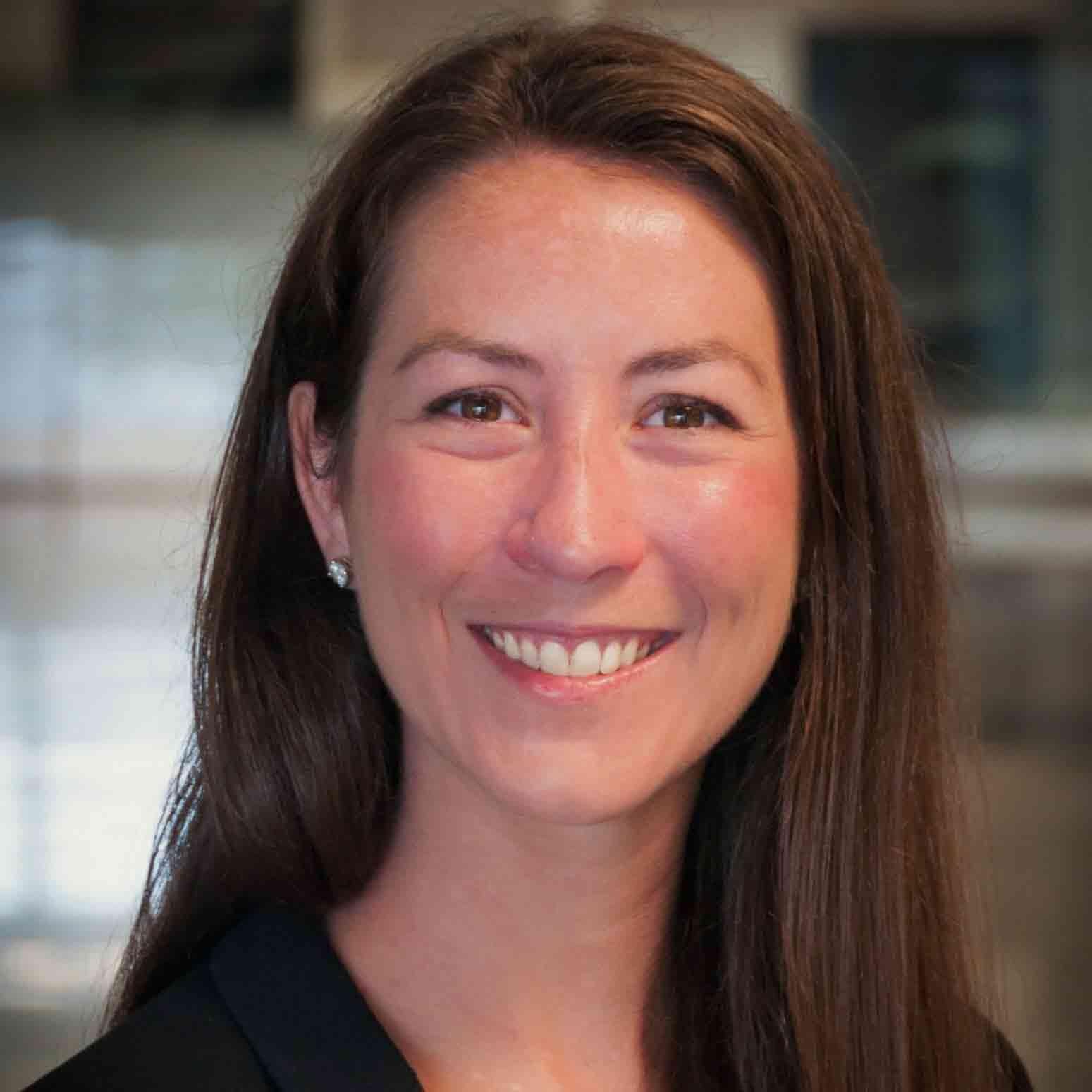
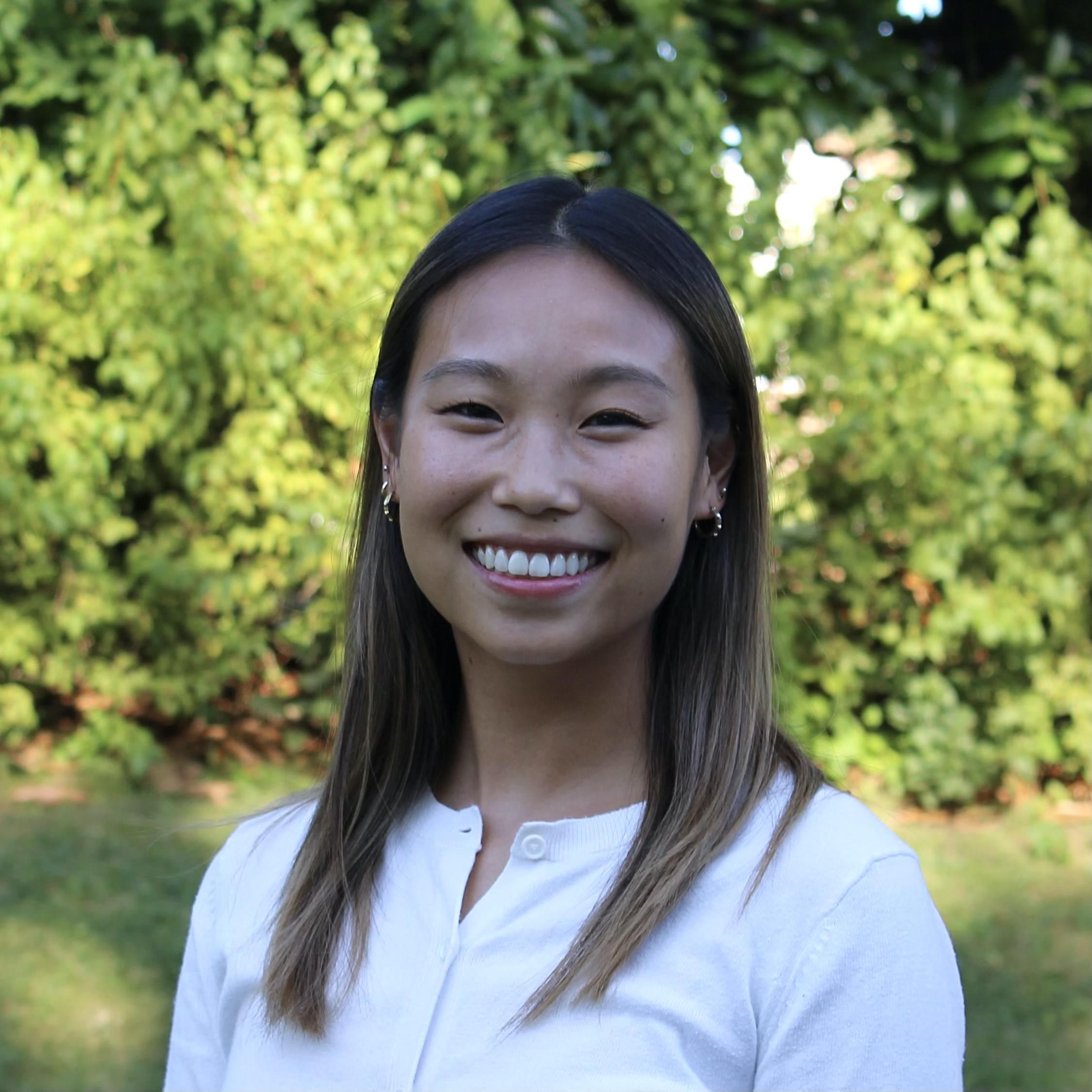
The Diamondback: UMD students' dance workshop highlights Japanese Butoh style, May 2022
Arts News
Game for a Business Challenge
The following article originally appeared in Maryland Today: We’re scrolling instead of unfolding the paper, barking commands at speakers to play music and now, turning video games from slacker pastime to competitive sport. What better way to navigate this new marketing terrain than Generation Z? FOX Sports University teamed up with College Park Scholars’ Business, Society and the Economy program this semester to develop marketing campaigns for a new gaming-focused joint venture from FOX Sports and social broadcast company Caffeine: Caffeine Studios. The 21 freshman and sophomore participants made their presentations to Caffeine and network executives this week.
Busboys and Poets Owner Contends Food Can Bring People Together During Migration Theme Event
College Park Scholars kicked off the spring semester with a February dialogue event for students to share their own personal stories around our annual theme, “Migrations.” Many of the participants, as first- or second-generation Americans, spoke of their connections to their parents’ or grandparents’ cultures through food. They also referenced the emotional impacts their families’ respective migration stories had on their own lives. On March 5, 2019, Scholars hosted our marquee theme event, “MIGRATIONS: Conversations on food, art and cultural fusion.” The Do Good Dialogue was presented in conjunction with The Clarice Smith Performing Arts Center and the Year of Immigration.
A Day in the Life of a Commuter Student
Marlen Cruz has taken on many roles in her scant 20-some years. First-generation American. First-generation college student. And: a commuter student. “My parents live five minutes away from campus. They were like, ‘There’s no way you’re living on campus,’” she relays, laughing. A public health science major who was in the Media, Self and Society Scholars program, Cruz says she was unhappy at first to not live on campus. “But then I realized, I liked going home and seeing my parents,” she says. The oldest of three, she is also close to her siblings and says commuting from home allowed her to keep tabs on them.
‘All-in’ Public Leadership Alum Offers Lessons for Other Scholars
Katie Bemb hadn’t intended on becoming a Terp. As a high school senior, she applied to the University of Maryland (UMD) regular decision but was strongly considering another university in the Washington, DC, metro area. That inclination began to change after her best friend—who had applied early action to UMD—got accepted into College Park Scholars. Students who apply early action are automatically considered for the living–learning program. “Once my friend told me about Scholars, I started to look more into it,” Bemb says. “And once I read more about the different Scholars programs, I started to get excited about UMD. When I read the description for Public Leadership Scholars, I felt like I was meant to be in the program.”

